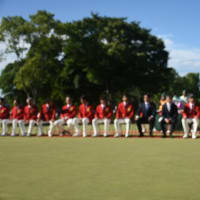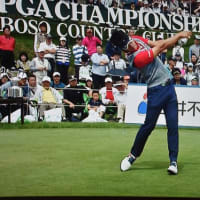軍艦島―韓国に傷つけられた世界遺産(ハート出版)
松木 國俊 著
その7 第3部:第11章、第12章
セントジョセフ国際大学
国際社会工学部 主任教授
古賀 剛大 様
第11章は「慰安婦像と徴用工像」です。
1992年1月、ソウルの日本大使館前で慰安婦問題に抗議する「水曜デモ」が始まりました。2011年12月に1000回目のデモ記念して「平和の少女像」なる慰安婦像がたてられました。
この慰安婦像が韓国各地に建てられ今や60体を超えているということです。こんな像を立てている自治体と姉妹都市関係にある日本の自治体が、40もあるというのですから、韓国の人たちもウソをウソと思わなくなるのももっともです。
さらに海外にも次々と「慰安婦像」は建てられています。そのリストが、本書に載っていますが、2018年5月現在、アメリカ、カナダ、オーストラリア、ドイツ、ネパール、フィリピン、など19か所にのぼります。
そして今度は「徴用工の像」です。『軍艦島』のウソ話を世界に広めようとしているわけです。
作者はこう書いています。
「韓国の男たちは女性を守ろうともしなかったのか」と外国人が心の中であきれていることもわかっていません。その上、徴用工の像まで作ってしまえば、「なんとふがいの無い哀れな民族なんだ!」と世界からさげすまれるだけなのです。
第12章は「日本企業に牙をむく韓国の司法」です。
2011年8月に韓国憲法裁判所は、「韓国政府が日本軍『慰安婦』被害者の賠償請求権について具体的解決のために努力をしていないのは憲法違反に当たる」との判決を出しました。韓国との賠償問題は、すべて1965年に締結された日韓基本条約に付随する「日韓請求権並びに経済協力協定」により「完全かつ最終的」に解決しています。
ところが韓国の最高裁は2012年5月に新日鉄とと三菱重工を相手取った裁判で「個人の請求権は有効」と判断し、原告敗訴の原判決を破棄して事件を高裁に差し戻してしまいました。その理由たるや、「日本の判決は植民地支配が合法であるという認識を前提に国家総動員法の原告への適用を有効であると評価しているが」と、要するに日韓併合が合法であることを否定した驚くべきものです。こうなると、戦前の日本人、日本企業の行ったことがことごとく不法行為になりかねません。徴用工問題の本質はここにあります。
日本語原文:http://hassin.org/01/wp-content/uploads/gunkan7.pdf
英訳文:http://www.sdh-fact.com/CL/Gunkanjima6.pdf
令和元年12月16日 「史実を世界に発信する会」 茂木弘道
Gunkanjima (Battleship Island): A World Heritage Site Soiled by Korea
--Another distortion of history, akin to the “comfort women”
By Matsuki Kunitoshi
Series No.7: Part 3: Chapter 11, 12
Chapter 11 is titled ‘Statues of a comfort woman and a mobilized worker.’
In January 1992, “Wednesday demonstrations” in front of the Japanese Embassy for the resolution of the Japanese military comfort women issue began. To celebrate the 1000th anniversary of the demonstrations in December 2011, a comfort girl statue called the “Monument of Peace” was installed.
Thereafter, more than 60 comfort woman statues have been placed all over Korea. It is mind boggling that 40 Japanese cities still maintain “sister city” relationships with these Korean cities. This will encourage brazenness on the part of Koreans regarding their position on the comfort woman issue.
Korean activists are planting statues all over the world. According to a list in the book, statues have been planted in 19 places, including in America, Canada, Australia, Germany Nepal and The Philippines.
And now, mobilized worker statutes are to be built. The sheer falsehood of the mobilized workers, as explained in this series, stand to be propagated world-wide.
The author writes:
They don’t see how the rest of the world is inwardly dumbfounded at their actions, wondering why Koreans did not try to protect their own women in the first place. On top of that, they even built statues of a mobilized worker, which will only increase overseas antipathy, “What a helpless, pitiful people Koreans are!”
Chapter 12 is titled ‘Korean judiciary intent on hurting Japanese companies.’
In August 2011, the Korean Constitutional Court ruled that it is against the Constitution for the Korean Government not to make any efforts to concretely resolve the issue of claims of compensation for the Japanese military comfort women. The issue of compensation between Japan and Korea was completely and finally resolved by the “Agreement concerning the Settlement of Problems in regard of Property and Claims between Japan and Korea and Economic Cooperation,” following the Treaty on Basic Relations between Japan and the Republic of Korea, which was concluded in 1965.
However, in a lawsuit against Shin-Nittetsu (currently Shin-Nittetsu Sumikin) and Mitsubishi Jukogyo (Heavy Industries) held on May 2012, the Korean Supreme Court ruled that “individual claims are valid,” and nullified a previous decision, in which the plaintiff lost, and returned the case to the High Court.
The Korean Supreme Court stated on this occasion:
On the premise that Japan’s colonial control was legal, the Japanese court ruled that the National Mobilization Act duly applies to the plaintiff. However, it is clearly against the sense of values held by the Korean Constitution that regards Japanese control of Korea as merely an illegal occupation and, therefore, the forced mobilization of Koreans is against the law.
This means that any action taken by the Japanese government and Japanese companies during Japanese rule of Korea could be deemed illegal. This line of thinking is contrary to modern international law.
URL: http://www.sdh-fact.com/book-article/1449/
PDF: http://www.sdh-fact.com/CL/Gunkanjima6.pdf
Questions are welcome.
MOTEKI Hiromichi, Acting Chairman
for KASE Hideaki, Chairman
Society for the Dissemination of Historical Fact
Phone: +81-3-3519-4366
Fax: +81-3-3519-4367
Email moteki@sdh-fact.com
Note: Japanese names are rendered surname first in accordance with Japanese custom.


























※コメント投稿者のブログIDはブログ作成者のみに通知されます